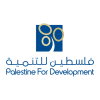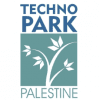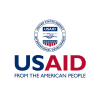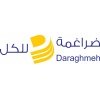End of phase Evaluation of the HEKS/EPER’s Israel / Palestin...
The HEKS/EPER program in Israel/Palestine, between 2021-2024, operated in Israel, the West Bank (including East Jerusalem), and Gaza, addressing the multi-faceted Israeli-Palestinian context.
Given the sensitive and complex nature of this context, this evaluation will be conducted with the utmost political sensitivity, respecting all stakeholders' perspectives.
- Description of the intervention
The HEKS/EPER program in Israel/Palestine, for the years 2021-2024, seeks to empower civil society organizations (CSOs) to increase community resilience capacities and to advocate for human rights and the rule of law, across Israel and Palestine.It operates in distinct geographic areas—Israel, the West Bank (including East Jerusalem), and Gaza—each with its unique political, economic, and social challenges.
The program’s expected outcomes focused on -
- Strengthening Communities Resilience: Building the capacities of the targeted communities to absorb, adapt and transform the threats and shocks they face.
- Economic Disparities: Empowering targeted communities, especially women and youth, to build and develop their own economic assets within their communities and to take part in their respective economic markets.
- Inclusion of Marginalized Voices: Ensuring that underrepresented groups, including Palestinian refugees, diaspora, Israeli activists, and Palestinian minorities in Israel, are included in policy dialogues and in decision-making processes.
- Advocating for Human Rights: Protecting the respect for human rights in all targeted communities and creating a clear voice to advocate against human rights violations.
The implementation of the program is done mainly through partnerships and collaboration with approximately 15 CSOs partners and engaging in various networks and platforms to maximize impact.The program directly implements advocacy actions in Swizerland and maintains a safe space for CSOs through “The Open Forum for Civil Society” project.
The program is guided by several of the HEKS/EPER’s key working approaches and cross cutting themes which include:
- Human Rights-Based Approach (HRBA) : Central to all projects and activities, ensuring that the rights of all individuals are respected and promoted.
- Supporting Civil Society : Enhancing the capacity of CSOs to operate effectively and have a meaningful voice in their societies.
- Conflict Transformation : Focusing on addressing injustices and fostering sustainable peaceful solutions.
- Systemic Change : Tackling the root causes of conflict, and striving for long-term, sustainable impact.
- Market Systems Development : Strengthening local market structures to benefit lcoal producers, workers and consumers.
- HDP ("triple”) Nexus Approach : Integrating humanitarian aid, development, and peacebuilding efforts to ensure a holistic response to the context challenges.
- Humanitarian Assistance : Responding to the urgent needs of those affected by the recent conflict, particularly in Gaza, through a conflict-sensitive and needs-based immediate assistance.
- Resilience Capacity Building : Enhancing the resilience of communiteis by strengthening their economic, social, political, technical and environmental assets.
- Gender Focus : Mainstreaming gender considerations, with an emphasis on women’s leadership and their capacities.
- Conflict Sensitivity : Ensuring that the program actions contribute to, rather than exaerabate tensions.
- Purpose and scope
During the implementation of this CP’s phase, between 2021-2024, some major contextual changes occured in the local, regional and global spheres. From the end of COVID’s restrictions, to ongoing escalations in violence up to the current war state.
These changes created the urgent need for a comprehensive evaluation study to assess the relevance, coherence and sustainbility of the CP’s TOC and its respected results framework.
The evaluation will coverthe entire duration of the program from 2021-2024, aking into account the evolving context and the lessons learned from the current phase. It will provide recommendations as to allow adjustmens to the new reality, and to be the basis for a future program design.
- criteria and questions
The evaluation will be comprised of 3 studies based on data collection and a compilation of them into one evaluation report in the following structure/process -
If you have related experience and interested please CLICK HERE to check the tender document





















